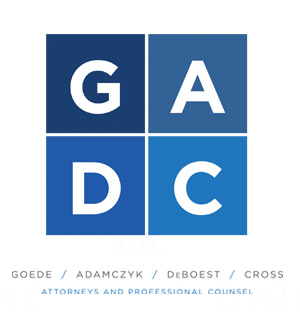Editor’s note: Attorneys at Goede, DeBoest & Cross, PLLC., respond to questions about Florida community association law. The firm represents community associations throughout Florida and focuses on condominium and homeowner association law, real estate law, litigation, estate planning and business law.
Q: Our condominium has a significant portion of residents over the age of 65 and we are concerned about opening our amenities. Some families are insisting we open the pool, tennis courts and clubhouse while others are urging the Board to be more conservative. Others are arguing that the Association never had the authority to close in the first place. What are your thoughts on this?
V.C., Treasure Coast
A: First, the Florida Condominium Act provides that the Board has emergency powers, and those powers include the right to deem certain portions of the condominium property closed. The Board could limit use to only residents, or it could limit use to residents and family, or it could close the amenities altogether. The statutes provide that the emergency powers last for so long as “reasonably necessary to protect the health, safety and welfare” of the residents. It is unclear when it won’t be reasonably necessary, but in my opinion the current situation authorizes the Board to use its emergency powers in this context.
Next, you need to consider local laws. Some counties are allowing pools (for example) to open under certain conditions, while other counties never had a restriction at all. You need to know your local requirements and determine whether the Board has a legal obligation to close the amenity, or open in phases with restrictions.
Third, you should consider the liability of opening too soon, or opening without appropriate protocols. If the Board opens the amenities with restrictions, note that the Board assumes a duty. If an owner contracts the virus and claims that he or she contracted the virus at an Association amenity, one argument would be that the Association failed to take appropriate precautions to maintain the property. It is obviously an extremely difficult task to prove how or where you contract an invisible virus, but the point is that many directors and officers (D&O) insurance policies have exclusions for biohazards or other rare events and your policy may exclude a claim against the Association or the Board members. If there is a lawsuit and no insurance coverage, then you want to be aware of the indemnification provisions contained in your specific governing documents. In other words, the Board should make the decision with an understanding of what protections exist for the Association, staff, and the Board.
Finally, you should assess your capabilities and what you do well. If you are not staffed to clean the amenities three times a day, for example, then do not commit yourself to this task. If you simply state that you will follow CDC recommendations, you must consider whether you have the ability to follow these recommendations. If you commit to take certain precautions and fail to follow through on those commitments, then it makes the lawsuit above more viable.
In summary, you have some discretion. In my opinion, you can continue to close the amenities under the statutory emergency powers or, depending on any local restrictions, you can open the pool, tennis courts, or other amenities. Many Floridians are taking a more conservative approach where a significant portion of the community is over the age of 65. I am not opining whether this is right or wrong, but it is a factor for many Boards across the state. The decision to open (or close), however, should not be taken lightly and you should discuss the matter with your legal counsel to determine how your actions fit into the overall protections of your governing documents and insurance coverage.
Visit our Condo/HOA Blog for more of our Q&A articles.
Steven J. Adamczyk, Esq., is a shareholder of the Law firm Goede, DeBoest & Cross, PLLC. Visit our website www.gadclaw.com, or to ask questions about your issues for future columns, kindly send your inquiry to: question@gadclaw.com. The information provided herein is for informational purposes only and should not be construed as legal advice. The publication of this article does not create an attorney-client relationship between the reader and Goede, DeBoest & Cross, PLLC or any of our attorneys. Readers should not act or refrain from acting based upon the information contained in this article without first contacting an attorney, if you have questions about any of the issues raised herein. The hiring of an attorney is a decision that should not be based solely on advertisements or this column.

